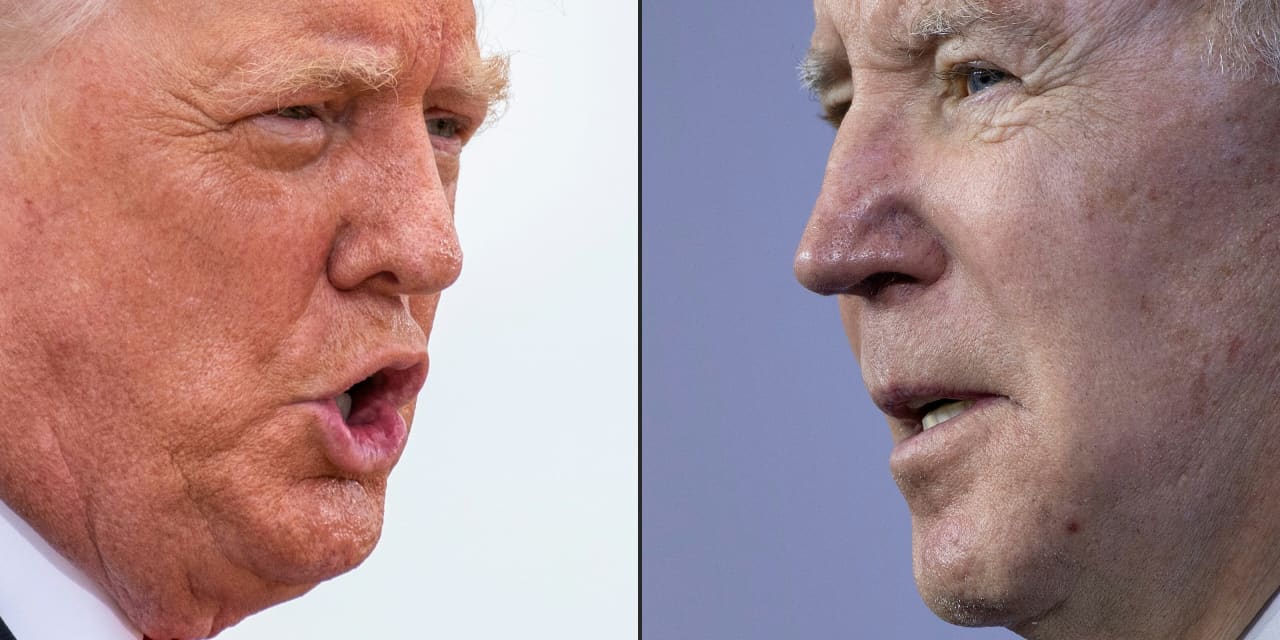U.S. President Joe Biden’s economic program is problematic, and former President Donald Trump does not offer much better. Both wrongly dismiss the old Washington Consensus that prosperity is best served by fiscal prudence, monetary discipline and free trade.
Trump’s tax cuts, Biden’s subsidies for industrial policy and their combined pandemic relief racked up $13 trillion in new debt from 2017 to 2023. The U.S. Federal Reserve enabled much of this by printing money, ultimately resulting in terrible inflation that the Fed is struggling to bring down to 2%.
Like Trump, Biden has maintained tariffs on China, and kept the U.S. out of the Trans-Pacific Partnership. Biden also eschews new free trade agreements.
Going forward, Biden is being more deliberate. He has sought collaboration with U.S. allies to limit Chinese access to cutting-edge technology. Biden will likely block imports of most Chinese EVs and components, but his aversion to the TPP cedes advantages to China in many of the world’s fastest growing markets.
A Bloomberg/Morning Consult poll found that just 26% of voters in seven swing states thought Bidenomics was good for the U.S. economy. Biden’s industrial policies to promote EVs, semiconductors and green energy are not particularly popular beyond their direct beneficiaries.
EVs are piling up on car lots — Americans want hybrids and gas-powered vehicles. Big-ticket offshore wind power projects have been canceled owing to rising costs and environmental concerns. We should be uneasy about the increasing vulnerability of winter electricity supplies as the electrical grid becomes more dependent on solar and wind.
Trump takes on trade and taxes
For his part, Trump has indicated he wants to extend the 2017 tax cuts that will expire in 2025 and further cut corporate taxes. But those would swell the federal deficit, which is already projected to average 5.5% of GDP over the next five years and pressure the Fed to print more money and create more inflation to keep interest rates from crowding out private investment.
Trump’s proposed 60% tariff on Chinese imports could reduce bilateral trade to near zero. This could handicap U.S. competitiveness in third-country markets by likely limiting access to Chinese battery technology and other low-cost materials.
Targeting Europe and threatening NATO, Trump can hardly expect continued European cooperation, for example on limiting Chinese access to chipmaking technology.
Trump’s saving grace — or good luck — is that big federal deficit, easy-money induced inflation didn’t arrive until after he left office.
Trump currently leads Biden in Michigan, Nevada, Arizona, North Carolina and Georgia, and the two are virtually tied in Pennsylvania and Wisconsin. But with Trump facing 91 felony charges in three states and Washington, D.C., why does he outpoll other experienced Republicans?
Simply, they represent “the establishment.” More and more Americans — even moderate ones, may not see the legal system as wholly fair, or the major political parties as working to their benefit, or the media, which habitually trashes Trump, as objective and reliable.
Americans would be receptive to a third candidate, but to offer an improvement, he or she would have to articulate a program to harness federal deficits by consolidating entitlements and rationalizing Defense Department personnel and procurement to accomplish greater efficiencies. This candidate would need to spell out concrete actions to curb immigration and ease burdens on cities that are within the powers of a sitting president or that could obtained through legislation.
For now, Trump is still selling himself as a disruptive outsider, and the mainstream media misreads what he represents. They correctly fear a second Trump administration may try to actualize his authoritarian impulses and that he is bent on revenge. But what Trump understands, and Biden has recently learned, is that the federal bureaucracy can pose obstacles.
Trump’s proposals are impractical without 60 votes in the Senate but still threatening to many moderate Americans — for example, weakening civil service tenure, establishing “anti-woke” national teacher certification and a national online alternative to public universities.
Another candidate is needed who will allay fears and steer a moderate course defined by more responsible federal budget, trade policies and immigration. Americans deserve someone who will inspire unity, not inflame our divisions.
Peter Morici is an economist and emeritus business professor at the University of Maryland, and a national columnist.
Read the full article here








